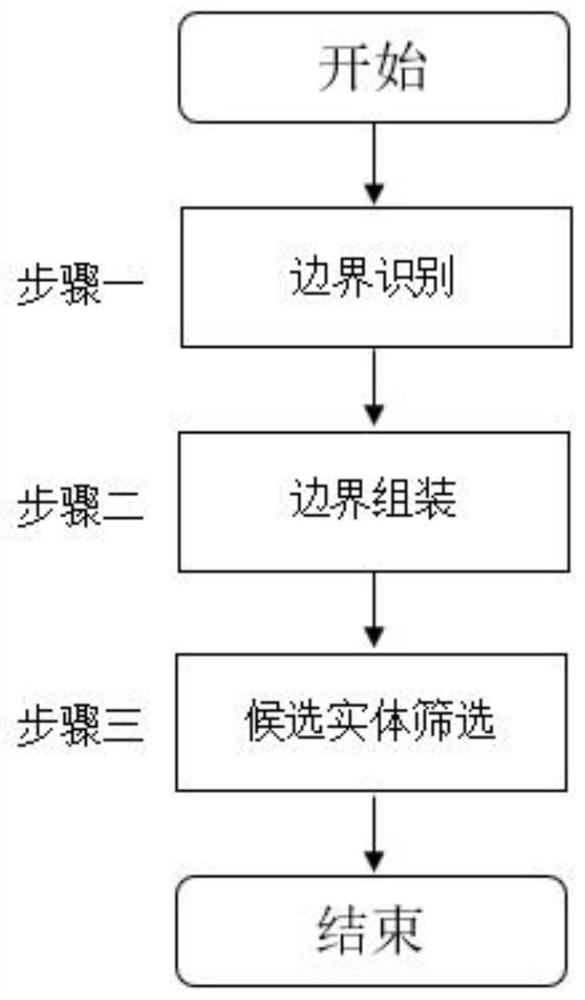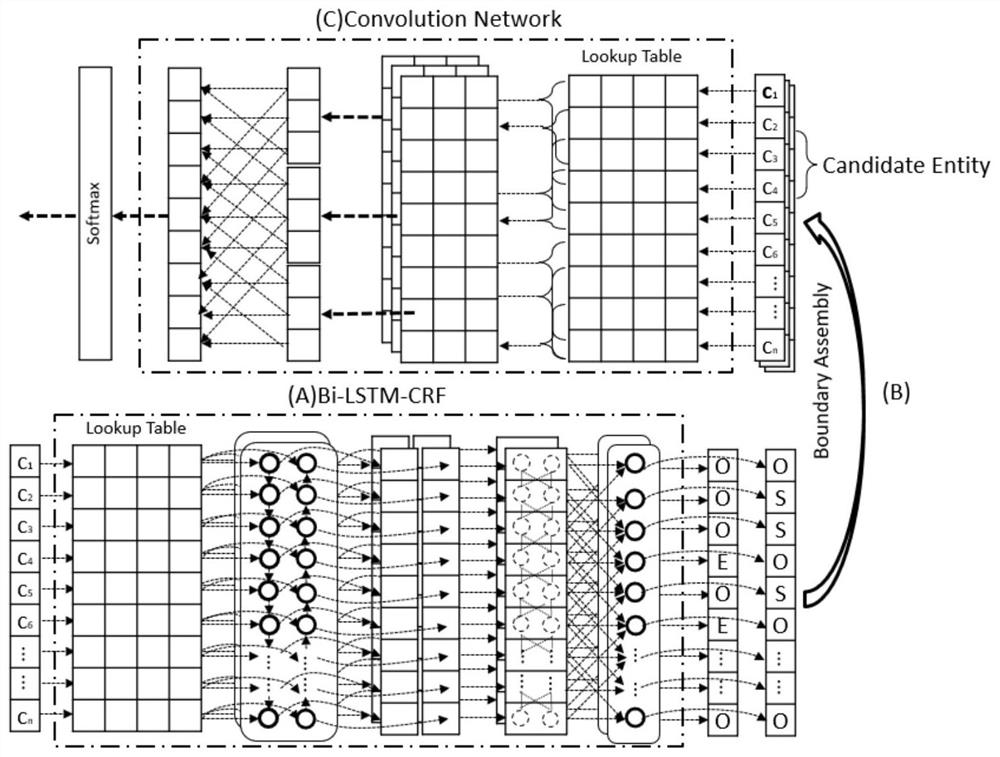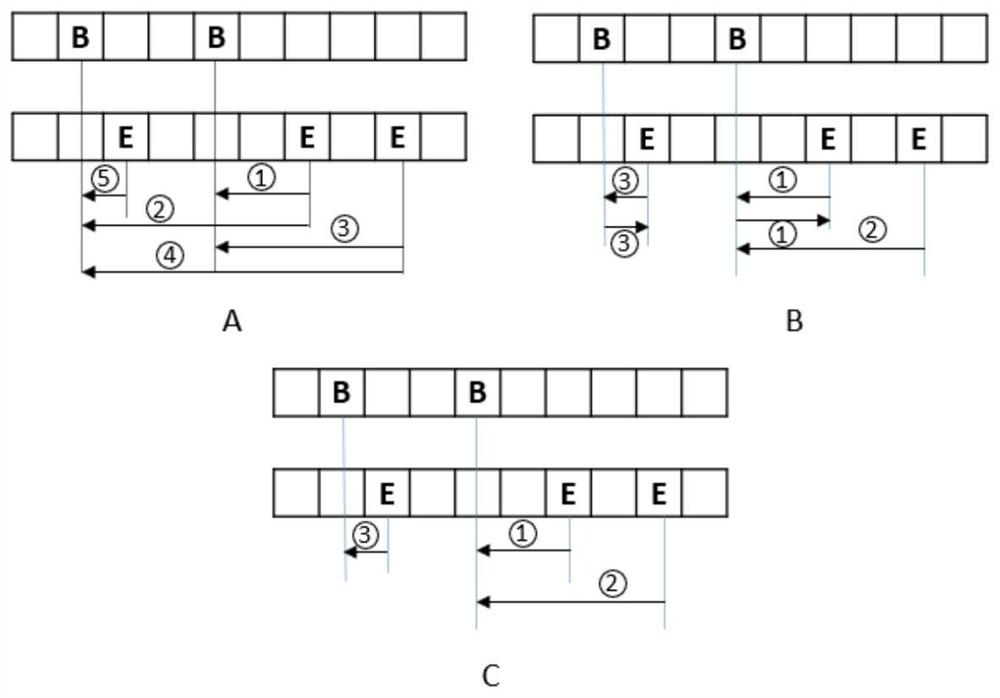A Boundary Composition Named Entity Recognition Method Based on Neural Network
A technology of named entity recognition and neural network, which is applied in the field of neural network-based named entity recognition and named entity recognition, can solve the problems of dependence effect, unfavorable feature weighting, and feature sparsity, and achieve high performance and prevent feature sparsity. , the effect of reducing the loss of semantic information
- Summary
- Abstract
- Description
- Claims
- Application Information
AI Technical Summary
Problems solved by technology
Method used
Image
Examples
Embodiment 1
[0024] Embodiment 1: as attached Figure 1~3 Shown, a kind of boundary combination named entity recognition method based on neural network is characterized in that: described method comprises the following steps:
[0025] Step 1: Construct a double boundary recognition cascade model based on the neural network to obtain the start and end boundaries of the entity;
[0026] Step 2: implement boundary combination, combine entity boundaries, and obtain candidate entity sets through screening;
[0027] Step 3: Construct a multi-segment neural network classifier to screen candidate entity sets.
[0028] In the first step, on the basis of the BiLSTM-CRF model, combined with the BERT pre-training technology, a multi-step cascaded neural network model for entity boundary information identification is established, see the attached figure 2 In part (A), the expected result of this step is to obtain accurate entity boundary classification results and perform local persistence, realizin...
PUM
 Login to View More
Login to View More Abstract
Description
Claims
Application Information
 Login to View More
Login to View More - R&D
- Intellectual Property
- Life Sciences
- Materials
- Tech Scout
- Unparalleled Data Quality
- Higher Quality Content
- 60% Fewer Hallucinations
Browse by: Latest US Patents, China's latest patents, Technical Efficacy Thesaurus, Application Domain, Technology Topic, Popular Technical Reports.
© 2025 PatSnap. All rights reserved.Legal|Privacy policy|Modern Slavery Act Transparency Statement|Sitemap|About US| Contact US: help@patsnap.com



